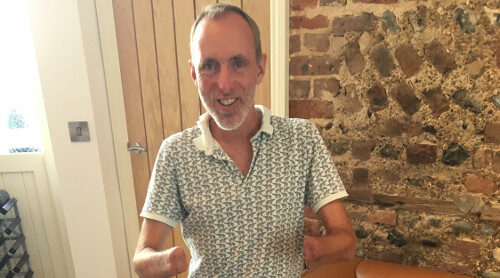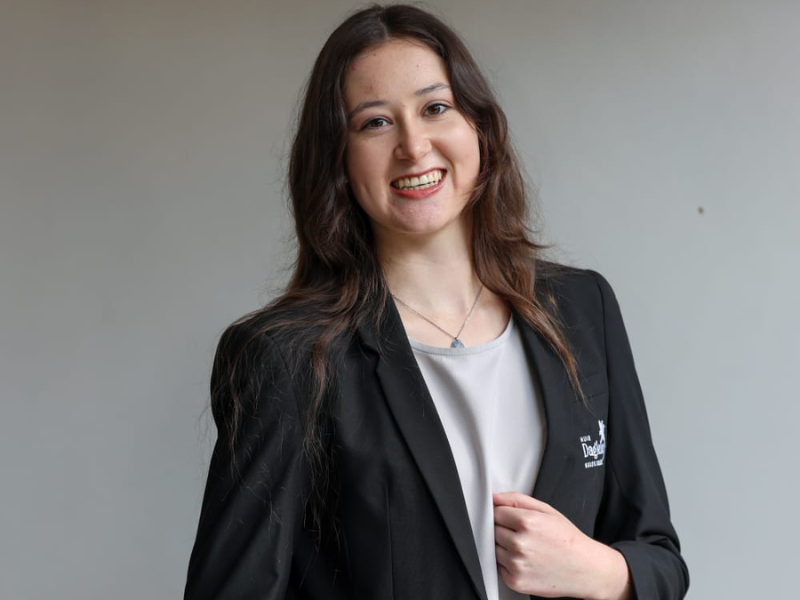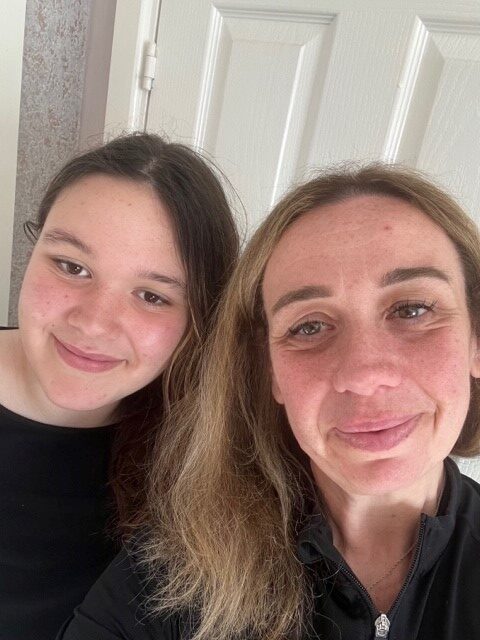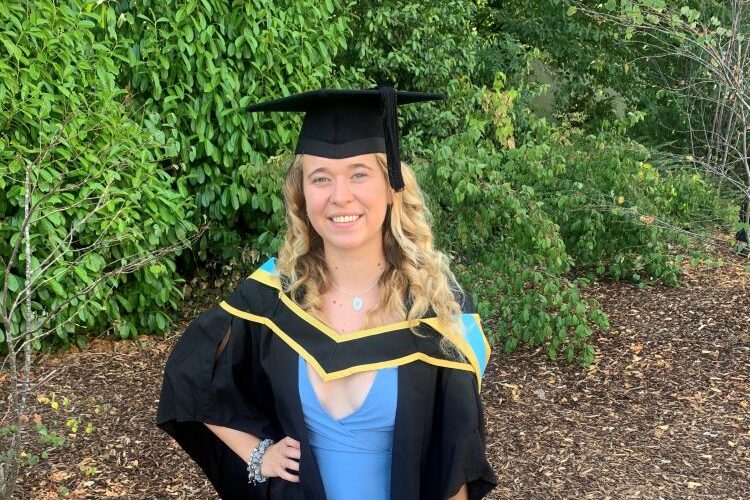I want to give back to the fantastic National Health Service (NHS) staff who saved my life, prepared me medically for the future and drove me through rehabilitation.
My story is their story. If I can bring that journey to life for current staff and for student medics, there is tremendous potential to inspire.
And my civilian story is so similar to the military ones told in “This Is Not For You”: trauma, loss, grief, separation and difficulty in fitting back in with family, striving for purpose and a positive future.
My career success is based on being able to see the wider picture and making that picture real for different audiences. This includes presentations to large gatherings of technology experts through to pitches to senior management to enable funding for future projects. Feedback says that I have a natural and engaging presentational style – that my stories are enjoyable despite the dry subject matter (e.g. motor manufacturers’ response to European Union legislation in diagnostics).
Life before meningitis
I am a lucky man. I was born in the centre of Manchester and grew up in that city of industrial achievement and many historical firsts: the first place in the world you could catch a train, the first computer with memory, the splitting of the atom, the very first NHS hospital. It shaped me.
Graduating in Computer Science and Physics, I started out developing when computers were the size of six IKEA Pax wardrobes. But I soon found I liked talking about the design more than doing it.
My career path was to be in engaging large organisations to learn their needs – Rolls Royce, Construction Industry Training Board, preventing accidents through safety training, in Sweden based at SAAB, and latterly being a representative of Europe for Ford Motor Company in diagnostics. I am a lucky man.
My fabulous wife Julie graduated at the Manchester University Dental School. Lucky for me she also moved from London to take up practice in the Manchester area. “Mike, would you come to fix a shelf at the practice and by the way clean your teeth.” was the signal that it was my turn in the chair. That’s when you hope you have been a good husband.
Julie’s recent retirement meant we could make the move to the south coast; to the vibrancy and inclusivity that is Brighton. Our son Rory has a new place to come home from university and my trek to Ford’s Essex design centre became easier.
We had just about unpacked all the removal boxes when it was time to get the Christmas decorations out – no small task when Julie has around 400 Santas to be positioned.
A life-changing event
And there I was, wrapping one last present on the afternoon of Christmas Eve when I began to get colder and colder. Climbing into bed didn’t help. Nor did Julie’s initial first aid. When I finally came downstairs, I looked like a ghost with blue lips.
111 took an age to respond but did get an ambulance out straight away once they connected. It was hard to make any form of diagnosis but my family insisted on the trip to hospital. Even then, it took Julie’s insistence to get me accepted into accident and emergency (A&E). I am a lucky man.
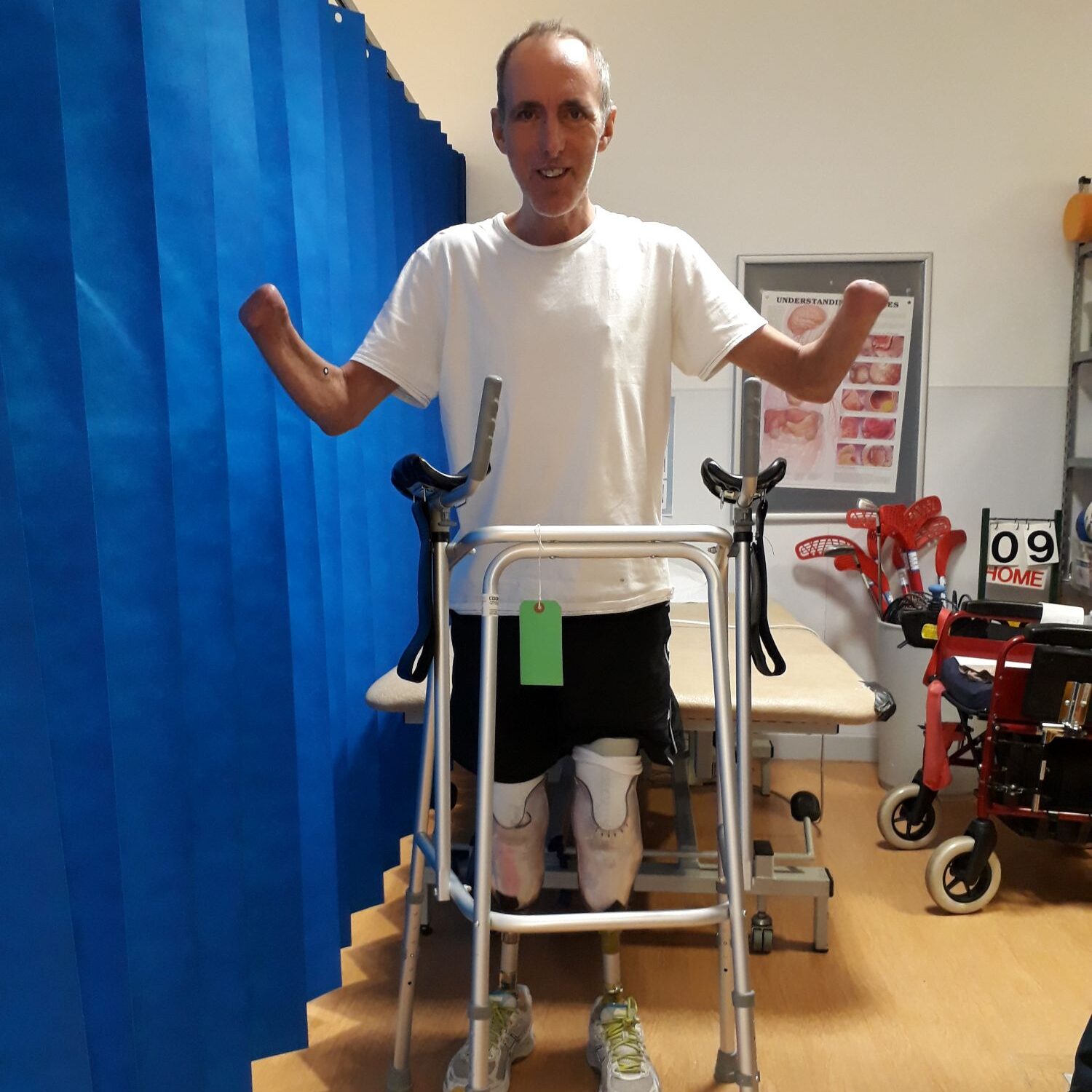
The fantastic National Health Service
The fantastic NHS clicked in. A&E became triage and quickly became the intensive care unit. They took over my vital functions – Rory counted 26 tubes or lines sticking in me. Although diagnosing a bacteria attack, which bacteria? “Does Mike usually look like this?” asked Leon (the registrar), referring to a rash that appeared on my face. The rash did not blanch – the bacteria was meningitis. The diagnosis could not be confirmed by test due to the antibacterial drugs already administered.
Julie and Rory were taken to a room with a settee – always a bad sign. It was the early hours of Christmas Day. They were told, “Mike is not responding to any of the medication. It is unlikely he will make it.”
Spoiler alert – I did make it.
Eventually.
Julie was told three more times that I wouldn’t make it. Rory made sure he said everything he wanted to me. When they held my hand, I said I could not feel it. In fact, my body’s defences had made sure there was blood to my heart and brain, but my hands and feet were dying.
Ten weeks in Intensive Care – that’s 70 days and nights on the edge of survival with incredible staff giving incredible intensive care. I am a lucky man.
On then to the vascular ward, knowing my feet and hands were dead and looking forward (yes, looking forward) to having them amputated. To be able to talk it all through with incredibly skilled surgeons taking personal interest in my best survival.
My legs went one week, my hands the next. The hands took seven hours alone and they did not know at the outset whether I would wake up needing yet another operation. The hands took just one operation. I am a lucky man.
Then weeks of recovery and wound healing in the care of the terrific ward staff. My physio, for instance, had started working on my body whilst I was still unconscious in Intensive Care and kept me mobile all through healing.
I learned everyone’s name and was able to say thank you to 56 individual health care assistants, nurses, therapists, doctors, consultants, meal providers and cleaners. But the fantastic National Health Service support continued as I transferred to the specialist rehabilitation centre that is Douglas Bader, Queen Mary’s, Roehampton, UK. The unit is named after their most famous amputee, Sir Group Captain Douglas Bader, who lost his legs in action, trained at Roehampton and continued to fly Spitfires in battle.
Two and a half months as an in-patient, in the walking gym by 8:30 each morning and one-to-one physio to learn to walk again on prosthetic legs. A great community of fellow patients to inspire each other – the day I was able to walk into lunch, no wheelchair this time, was such a lift for everyone.
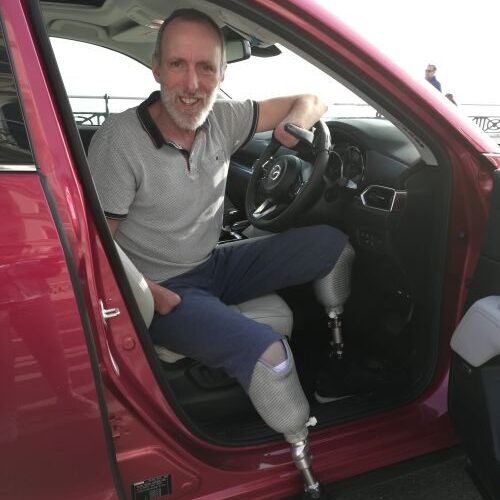
Prosthetic hands are a longer discussion. It’s amazing what you cannot do without hands but also amazing what you can. Problem solving becomes an art. I have not mentioned my fabulous wife Julie for a while but one of the first things she did was to get the sewing machine out and create a wrist-strap to hold a stylus that even today enables me to type, one key at a time, on the computer.
I continue to rely on the fantastic National Health Service now I am home from rehabilitation.
The meningitis attack got my kidney too, so I have to have my blood detoxified three times a week at dialysis. So, it’s back to my hospital, The Royal Sussex, on a regular basis. This though means I have had the chance to go back to Intensive Care, to thank some of those who saved my life. And back to the vascular ward to thank some of the staff involved in my recovery. I should have died. With the NHS’s help I survived. I am a lucky man.
Life after meningitis
I have a hugely fulfilling life and talk of my journey to help others wherever I can.
I survived with sequelae – chronic kidney disease and all four limbs amputated. But I have now become only the tenth hands transplant recipient ever in this country.
Life just gets better and better.
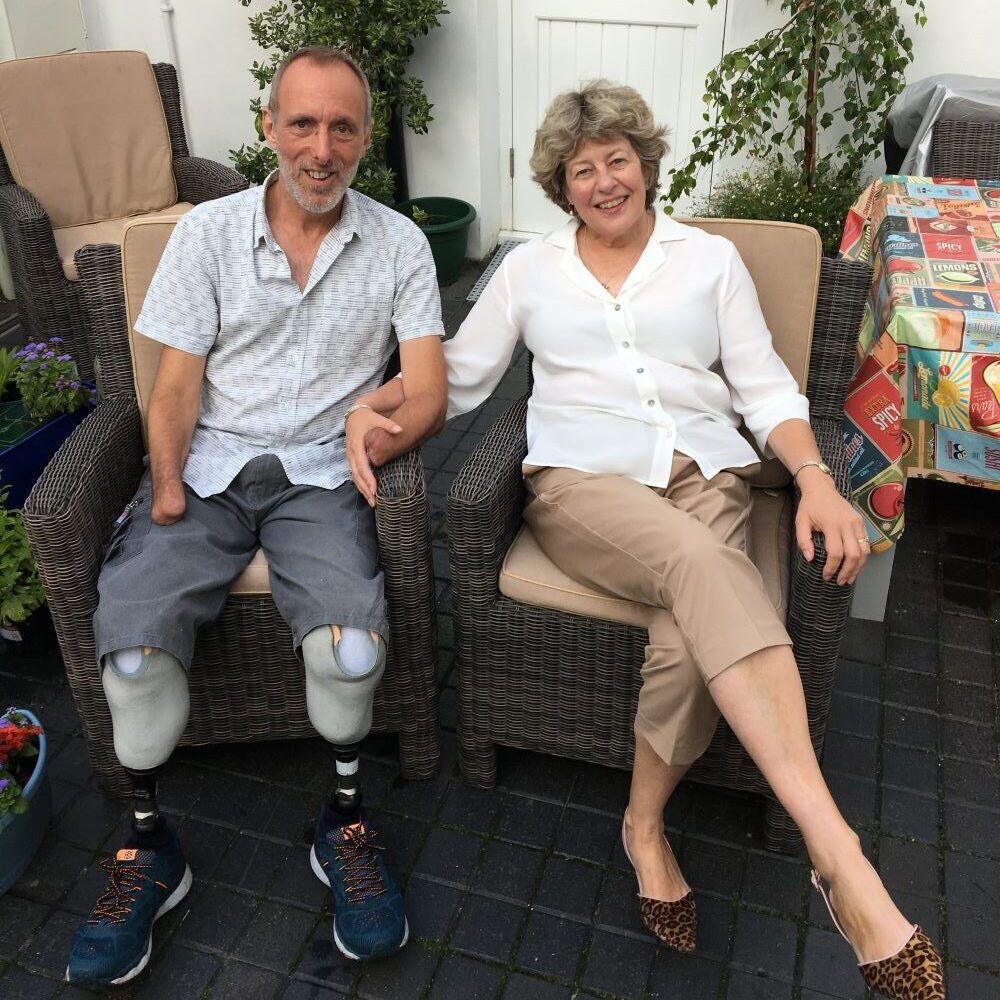
I should have died. With the NHS' help I survived. I am a lucky man.Mike Davies, Meningitis Research Foundation Ambassador
Related stories
Share your story today
One story can change a life. 2,030 could change the world. Share yours today.

